Choosing a nursing specialty is an exciting opportunity to shape your career around your passions and strengths. With dozens of nursing specialties – from fast-paced emergency rooms to compassionate end-of-life care – the possibilities can feel both inspiring and overwhelming.
Whether you’re a nursing student, a new graduate, or changing careers into nursing, finding the right niche is a personal journey. This guide will walk you through a step-by-step decision-making process, describe common specialties (with their roles, work settings, certifications, salaries, and outlook), and help you weigh personal factors like work-life balance and long-term goals. By the end, you’ll have a clearer sense of how to choose a nursing specialty that fits you.
The good news is that nurses are needed everywhere. The field is growing – the U.S. Bureau of Labor Statistics projects RN employment to grow about 6% from 2023 to 2033 – so there are opportunities in many areas. In fact, the median annual wage for registered nurses was $93,600 as of May 2024. This means you can focus on finding a role you love knowing that job prospects are strong. Now, let’s dive into how to figure out which nursing specialty is right for you.
Step 1: Self-Assessment – Know Your Interests and Strengths
The first step in choosing a specialty is looking inward. Take some time for self-reflection about what draws you to nursing and where your talents lie:
What are your passions and interests?
Which patient populations or health issues are you most passionate about? Think back to clinical rotations or healthcare experiences that excited you. Did you love working with children, comforting new mothers, or caring for the elderly? Maybe the fast action of the ER had you on the edge of your seat, or perhaps you found satisfaction in the continuity of caring for oncology patients over time. List the areas of care that spark your interest – these are big clues to the right specialty for you. For example, if you light up around kids, pediatric nursing might be a natural fit. If you were fascinated by complex medical cases, critical care or medical-surgical nursing could suit you.
Skills and Personality
Be honest about your personality and work style. Are you calm under pressure and quick at making decisions? Emergency or ICU nursing might align with those traits. Do you have a lot of patience and great communication skills? You might thrive in psychiatric nursing or patient education roles. If you’re very detail-oriented and methodical, working in an operating room or as a research nurse could be satisfying. On the other hand, if you love variety and multitasking, a busy med-surg floor could be a good training ground. Also consider your interpersonal style: do you enjoy building long-term rapport with patients (common in oncology or primary care), or do you prefer brief, solution-focused encounters (as in triage or procedural areas)? There is no one-size-fits-all – the key is finding a specialty that matches your strengths and temperament.
Values and Motivations
Reflect on what motivates you in your career. Is it making a difference in underserved communities? Perhaps public health or community nursing would be meaningful. Are you driven by adrenaline and challenge? High-acuity areas like trauma or critical care deliver that in spades. Maybe work-life balance and a predictable routine are top priorities – in that case, a clinic nurse role or school nursing (with more regular hours) could be attractive. Understanding what you value most in work (e.g. teamwork, autonomy, technical skills, patient relationships) will guide you toward specialties that provide those elements.
Take notes on your self-assessment. This personal profile of interests, skills, and values will act as your compass in evaluating specialties. It’s perfectly normal if you have more than one interest – many nurses enjoy multiple areas and you can always change specialties later. The goal of self-assessment is simply to identify a few promising paths to explore further.
Step 2: Research and Explore Different Specialties
Once you have an idea of your interests, the next step is to learn about the variety of nursing specialties out there. Start by researching common specialties to understand what each entails. You can do this through:
Reading and Online Research
Browse our nursing career guides, or even the Occupational Outlook Handbook to get an overview of specialties. Pay attention to the typical job duties, work settings, and any additional training required for each field. If a specialty piques your interest, dive deeper – for example, read articles or watch videos about “A Day in the Life” of an ICU nurse, or follow nursing blogs/social media for that specialty. Many professional nursing organizations (like the Emergency Nurses Association or Oncology Nursing Society) have free resources and webinars about their specialty.
Talk to Nurses and Mentors
There’s no substitute for firsthand insight. If possible, speak with nurses working in areas you’re considering. Ask them what they love about their job, what challenges they face, and what a typical shift is like. Nursing instructors, clinical preceptors, or mentors can also share perspective on various fields. Don’t be shy – most nurses enjoy sharing their experiences with students or new grads. You might be surprised to learn the behind-the-scenes reality of a role (for instance, how much paperwork is involved, or how they handle stress), which can either solidify your interest or point you elsewhere.
Clinical Rotations or Shadowing
If you’re still in nursing school, use your clinical rotations as a chance to “test drive” different specialties. Pay attention to which days you feel most energized and which patient populations you connect with. If you’re already licensed or changing careers, see if you can shadow a nurse in a field you’re curious about, even just for a day. Many hospitals offer shadow days or let employees from other units observe. Volunteering in certain departments can also expose you to the workflow. Hands-on exposure will give you a gut feeling about whether you could see yourself in that specialty long-term.
Residency Programs for New Grads
If you’re a new graduate, be aware that some hospitals have nurse residency programs that allow you to start directly in specialties like ER, ICU, or OR as a new nurse. New nurses were often advised to do a year of general medical-surgical nursing first, but this trend is changing. If you know your heart is set on a specialty, look for facilities that offer structured onboarding for new grads in that area. Residency programs provide extra training and support so you can safely transition into high-acuity units early in your career. This means you don’t necessarily have to “pay dues” in a unit that isn’t your passion – you can pursue your interest from the start, given the right opportunity.
As you research and explore, keep an open mind. You may discover a specialty you hadn’t even heard of in school (for example, informatics nursing or flight nursing). Jot down pros and cons of each role you consider. At this stage, your goal is to gather information and imagine yourself in various nursing shoes.
Step 3: Consider Work Environment and Lifestyle
A crucial aspect of finding the right specialty is thinking about the day-to-day environment and how it fits your desired lifestyle and work-life balance. The nursing world isn’t one-size-fits-all – different specialties come with very different work settings and schedules. Ask yourself these questions:
Hospital vs. Non-Hospital
Do you see yourself in a busy hospital setting or would you prefer an outpatient or community environment? Hospitals are where you’ll find specialties like ICU, ER, labor & delivery, operating room, and most inpatient units. These jobs often involve 12-hour shifts, nights, weekends, and holidays, but also offer the intensity and teamwork of acute care.
Alternatively, clinics, schools, public health, and office-based roles (like nurse case managers or research nurses) typically have more regular hours (e.g. 8-5 weekdays) and a calmer environment. If work-life balance and a steady routine are priorities, you might lean toward non-hospital specialties or those with day shifts (e.g. outpatient oncology infusion or school nursing). If you thrive on the hospital buzz and don’t mind shift work, an inpatient specialty could be your calling.
Pace and Acuity
Consider the pace you’re comfortable with. High-acuity areas like the Emergency Department or Trauma ICU are fast-paced with constant action – you might be juggling multiple critical patients and making split-second decisions. This can be exhilarating if you like adrenaline, but exhausting if you prefer a slower pace.
In contrast, specialties like geriatrics, rehabilitation, or postpartum care might have a steadier rhythm, allowing more time for patient interaction and education. Think about whether you want an environment that’s high-stimulation or one where you can slow down and focus deeply on each patient. Both are rewarding in different ways.
Patient Turnover vs. Ongoing Relationships
Specialties also differ in how long you typically interact with patients. In some areas, like surgery or emergency, care episodes are short – you treat the issue and then the patient moves on. If you’re someone who enjoys establishing ongoing relationships, you might prefer fields like oncology, primary care, or pediatrics, where you may see the same patients regularly and watch their progress over time. On the other hand, if you like the idea of always meeting new people and handling new challenges each day, high-turnover areas like ER or perioperative nursing provide that fresh stream of patients. Consider which dynamic feels more satisfying to you personally.
Workload and Team Dynamics
The nature of teamwork can vary too. In an ICU or med-surg floor, you’ll likely work with a unit team every shift (other nurses, physicians, respiratory therapists, etc.), and hand off patients between shifts. In home health or case management, you might work more independently, visiting patients one-on-one. Some specialties require coordinating care across disciplines heavily (e.g. case managers, hospice nurses with social workers), whereas others have you focusing on nursing tasks at the bedside. Reflect on whether you prefer working closely in a team throughout your day or having more autonomy.
Physical and Emotional Demands
All nursing has challenges, but some specialties are more physical – for instance, floor nurses often hustle and may need to lift or turn patients frequently, whereas an OR nurse or a dialysis nurse might be on their feet all day in one room. Similarly, consider the emotional intensity: caring for trauma victims or terminally ill patients can be emotionally heavy. If you feel strongly about avoiding burnout, consider how each specialty might impact you. Acknowledge your own limits – it’s okay if, for example, you find oncology meaningful but worry it might be too emotionally draining; you could then consider an alternate path like surgical nursing where patients typically recover.
By evaluating the work environment and lifestyle of each specialty, you ensure that your career will fit the life you want outside of work as well. For instance, if you know you want a family life with holidays off, a role as a Nurse Educator or a clinic nurse might align better than, say, being a charge nurse on a 24/7 ICU. It’s all about finding the right balance for you. Remember, there’s a huge range – from travel nursing (great pay and adventure, but lots of moving around) to community health (consistent schedule, typically day hours, but perhaps lower pay). Weigh these factors according to your priorities.
Step 4: Check Training, Certifications, and Education Requirements
Another practical consideration is what additional training or credentials you might need (or want) for a given specialty. Most entry-level nursing specialties only require your RN license and on-the-job training. However, some roles and advanced specialties come with extra requirements:
Specialty Certifications
Many nursing specialties offer voluntary certification that you can earn after gaining some experience. While not usually required to work in a specialty, certifications can enhance your knowledge and make you more competitive for jobs or promotions. For example, an ICU nurse can earn the CCRN (Critical Care Registered Nurse) certification after about 1-2 years in practice, demonstrating expertise in critical care. Emergency nurses often pursue the CEN (Certified Emergency Nurse) certification, typically after two years of ER experience.
There are certifications for almost every area – Certified Pediatric Nurse (CPN) for pediatrics, RNC-OB for obstetric nurses, OCN (Oncology Certified Nurse) for oncology, CNOR for operating room nurses, and so on. When exploring a specialty, find out if there’s a recognized certification and what it entails. Achieving these credentials usually involves a certification exam and continuing education. They can boost your confidence, signal your commitment to that field, and sometimes even lead to a pay raise or bonus. For instance, having certifications in critical care, oncology, or geriatrics can often increase earning potential in those roles.
Advanced Degrees for Advanced Roles
Consider whether you have interest in roles that require further education beyond the RN. Advanced Practice Registered Nurse (APRN) roles – like Nurse Practitioners (NPs), Certified Nurse Midwives (CNMs), Clinical Nurse Specialists, or Nurse Anesthetists (CRNAs) – all require a master’s or doctoral degree in nursing and national certification. These are specialized career paths of their own.
For example, if you are passionate about anesthesia and high compensation, you might set a goal to become a CRNA (which currently earn among the highest salaries in nursing, often over $200k, but require a doctorate and ICU experience). If women’s health is your calling, becoming a Nurse Midwife or Women’s Health NP could be a long-term objective, but you’d need labor & delivery experience and graduate schooling.
For new grads or career changers, it’s fine to start as an RN and later decide if advanced practice appeals to you. Just keep in mind if a certain specialty tends to be an end point or a stepping stone. For instance, a couple of years in a general med-surg or ICU unit can provide a foundation if you later pursue advanced roles or specialization.
On-the-Job Training and Courses
Some specialties require learning new skills on the job or through short courses. Operating room (OR) nursing, for example, often provides a perioperative training program since circulating or scrubbing in surgery is not extensively covered in nursing school. Likewise, L&D nurses typically get trained in fetal monitoring and neonatal resuscitation (you might be expected to get Neonatal Resuscitation Program (NRP) certified). ER nurses usually need Advanced Cardiac Life Support (ACLS) and Pediatric Advanced Life Support (PALS) certifications early on, which many hospitals provide classes for.
If the idea of ongoing learning excites you, great – nursing is full of it! Just be prepared that choosing a specialty might mean a commitment to continuous education. This is a positive thing, as it keeps you growing. Research what typical credentials or courses employers expect for new hires in that specialty so you can plan accordingly.
Licensure Considerations
If you’re a career changer already holding a nursing license, ensure your license is up to date and consider the Nurse Licensure Compact if moving between states. If you’re still becoming an RN, remember that at minimum you’ll need to pass the NCLEX-RN exam to practice. But beyond that, no additional license is needed for most RN specialty roles. The exception is if you pursue advanced practice – e.g., to be a Nurse Practitioner or Nurse Anesthetist you’ll obtain an APRN license in addition to your RN.
In short, think about the investment in training each specialty might require. Are you open to pursuing certifications? Do you want or need an advanced degree for your dream role? For many people, the answer at the start is “I want to get experience first,” which is perfectly fine. Others might already know they aim for, say, Nurse Practitioner in pediatrics, so it makes sense to start in pediatric nursing as an RN and later go back to school. Map out a tentative plan for the specialties you’re eyeing – it will help you understand the timeline and steps to reach your goals.
Step 5: Envision Your Long-Term Career Path
Finally, consider your long-term career goals and how your specialty choice will support them. This doesn’t mean you must have every step figured out – nursing is a career with flexibility and many people change direction. However, thinking ahead can ensure your first specialty moves you toward your aspirations:
Career Advancement
Do you see yourself in leadership, education, or advanced practice in the future? If so, some specialties might offer more opportunities to progress. For example, if you love management, starting in a broad area like medical-surgical nursing could expose you to a variety of cases and help build general skills before moving into charge nurse or nurse manager roles. If academia or teaching is a goal, any specialty can work, but you’ll eventually need higher degrees – consider a path that allows time for further education (maybe a specialty with manageable hours or one that you’re passionate enough about to research and teach).
Specialization vs Generalist
Some nurses become lifelong experts in one area; others enjoy rotating through a few. If you suspect you’ll want to try different things, a foundational specialty like med-surg or critical care might give you transferable skills to pivot later. On the flip side, if you know your heart is in one field (say, neonatal care), you might dive straight in and potentially stay in that niche your whole career, advancing to roles like charge nurse, educator, or neonatal NP over time. There’s no wrong approach – just think about whether you want your early years to be a springboard to something else or deeply rooted in a particular field.
Geographic and Job Market Considerations
Envision where you might live or the kind of employer you might want in the future. Certain specialties are more available in big urban hospitals (for example, trauma nurses or transplant nurses), whereas rural areas might have more generalized roles (you might wear many hats in a small community hospital).
If you plan to move states or countries, consider universally in-demand specialties like OR, ICU, or ER, which exist everywhere. Meanwhile, something like cruise ship nursing or flight nursing is more niche and location-dependent. Thinking about the bigger picture of your life can sometimes influence what specialty makes sense to start in, so you build experience relevant to where you eventually want to be.
Satisfaction and Personal Fulfillment
Long-term goals aren’t only about titles and money – they’re about what will keep you fulfilled. Burnout is a real challenge in nursing, so envision yourself 5, 10, 20 years down the line. What kind of work will keep you motivated each day? It might be the deep gratitude of hospice patients and families, the intellectual stimulation of intensive care, or the creativity of informatics and problem-solving. Your passions may evolve over time, and that’s okay. The important thing is to choose a specialty now that excites you and aligns with where you currently see your career heading. You can always redirect later if your interests change.
Try writing a simple “personal mission statement” for your nursing career – a sentence or two about why you became a nurse and the impact you want to have. For example: “I want to provide compassionate care to children and become a leader in pediatric pain management,” or “I’m committed to improving healthcare for underserved communities through public health nursing.” This statement can guide you toward specialties that resonate with your mission. Over time, as you gain experience, you’ll refine your goals. Many nurses do go back to school or switch specialties down the road. In fact, the beauty of nursing is that it offers lifetime flexibility – your first specialty choice is not a permanent marriage, just the start of your journey.
With these steps in mind, let’s now look at some of the most common nursing specialties, what they involve, and the current outlook for each. As you read through these, imagine how they match up with the preferences and goals you identified in Steps 1-5.
8 Common Nursing Specialties
Nursing has a rich array of specialties, each with unique roles and work settings. Below, we highlight several popular nursing specialties. For each, we’ll cover job responsibilities, typical work environments, any certifications often associated with the role, average salary ranges, and job outlook or demand. Keep in mind salaries can vary widely by location and experience; we provide national averages for a general idea. Job outlook in nursing is generally positive across the board, but some fields are growing especially fast due to demographic and healthcare trends. Let’s explore these specialties:
1. Medical-Surgical Nursing (Med-Surg)
Medical-surgical nursing is the broad foundation of hospital nursing. Med-surg nurses care for adult patients with a wide range of illnesses and post-surgery needs. On a med-surg floor, you might one day manage a diabetic patient recovering from a foot infection, a young adult with appendicitis post-op, and an elderly patient with pneumonia – all during the same shift. This specialty is known for giving nurses well-rounded experience in managing multiple patients and various conditions.
Work Environment
Med-surg nurses typically work in general units of hospitals (often called wards or floors). Patient acuity is moderate – not ICU level, but patients still need frequent monitoring and medications. A typical assignment might be 4-6 patients per nurse, depending on staffing. The pace is busy: administering meds, performing assessments, coordinating with doctors and therapists, educating patients for discharge, and responding to alarms and calls. It’s a team environment, working with nursing assistants, physicians, and others. Med-surg units run 24/7, so nurses work rotating shifts (including nights/weekends). You may also find med-surg nurses in subacute rehab facilities or long-term acute care hospitals, where similar skills are used.
Responsibilities
Key duties include assessing patients, managing IVs and medications, dressing wounds, monitoring post-operative recovery, preventing complications (like infections or falls), and teaching patients how to manage their conditions after discharge. Med-surg nurses become experts in time management and prioritization, since they must juggle care for several patients at once. Communication is huge – you’re coordinating discharges, admissions, and interdisciplinary care constantly. It can be challenging, but many nurses credit med-surg as the place they solidified their fundamental skills.
Certifications
While not required, med-surg nurses can become board certified (RN-BC in Medical-Surgical Nursing through ANCC, or CMSRN through the Academy of Medical-Surgical Nurses) after gaining experience. These certifications validate expertise in adult health nursing. Also, med-surg nurses often maintain ACLS certification (Advanced Cardiac Life Support) because they care for patients who could deteriorate and need advanced interventions.
Salary and Outlook
Medical-surgical nursing salaries fall under the general RN pay scale. Because it’s such a common role, the pay is around the median for RNs. In the U.S., registered nurses overall earn a median of about $93,600 per year as of 2024, and med-surg nurses typically earn somewhere near this range (often in the lower to mid $80k’s, varying by region and experience). For example, one source estimates an average around $88,000 for med-surg RNs, but this will differ widely. The job outlook for med-surg nurses is consistently strong because they are the backbone of hospital staffing.
Over half of RNs work in general medical and surgical hospitals. As the population ages and hospitals see high patient volumes, med-surg nurses are in perpetual demand. It’s often easier for new graduates to get hired in med-surg units (since specialty ICUs or ORs might have fewer openings for newbies), making it a common starting point. Experience in med-surg can also be a springboard to other specialties down the road.
Who Might Love This
If you want a broad skill set and are excited by variety in your patient population, med-surg is ideal. It’s great for team players who don’t mind a hectic environment and who gain satisfaction from honing fundamental nursing skills. It can also suit those who are undecided on a specialty – you’ll see a bit of everything, which can later inform a move to a more focused field once you discover what you like most.
2. Emergency Nursing (ER Nurse)
Emergency nurses work in the adrenaline-charged world of the Emergency Department (ED). They treat patients suffering from everything from minor cuts to heart attacks, strokes, trauma injuries, and psychiatric crises – often all in the same shift. As an ER nurse, you never know what’s coming through the door next. The motto here is be prepared for anything. ER nurses are experts at rapid assessment and stabilization. They triage patients (deciding who needs the most urgent care), assist with procedures like suturing wounds or starting IV lines, administer emergency medications, and provide critical support during life-threatening situations (CPR, defibrillation, etc.). It’s a fast-paced, high-pressure specialty that requires excellent teamwork and a cool head.
Work Environment
The Emergency Department is typically a noisy, bustling area of a hospital, operating 24/7 (the ED never closes, and neither do ER nurses!). Shifts can be day or overnight, and weekends/holidays are usually part of the schedule. ER nurses work in teams and alongside physicians, paramedics, respiratory therapists, and others to handle the continuous flow of patients. One moment you might be caring for a child with an asthma attack, the next managing a multi-trauma from a car accident. Patient stays in the ER are short (a few hours on average), so nurses focus on immediate interventions, stabilization, and then either discharging the patient or transferring them to an inpatient unit. The unpredictability is both the appeal and the challenge – an ER nurse’s day can swing from routine to chaotic in an instant.
Responsibilities
Key tasks include triaging incoming patients, performing quick head-to-toe assessments, drawing labs and interpreting results, starting IVs and administering IV medications or fluids, wound care (like cleaning and dressing lacerations), assisting with emergency procedures (e.g. intubations, central line insertions, chest tube placements), and closely monitoring vital signs. ER nurses must also be adept at patient education and emotional support – the ER is scary for patients, so explaining treatments and providing reassurance is vital. They interact with families in crisis, often giving initial bad news or instructions for follow-up care. Documentation in the ER is fast and focused on the essentials due to time constraints. Prioritization is a critical skill: an ER nurse constantly re-assesses which patient is most in need of attention at a given moment.
Certifications
Emergency nurses are generally required to have ACLS (advanced cardiac life support) and PALS (pediatric advanced life support) certifications, since they treat critical conditions in adults and children. Many also obtain TNCC (Trauma Nursing Core Course) to better manage trauma cases. A widely recognized specialty certification is the CEN (Certified Emergency Nurse) offered by the Board of Certification for Emergency Nursing. While not mandatory, the CEN is a credential ER nurses often pursue after about 2 years of experience. It validates expertise in emergency care and can be a plus for career advancement. ER nurses also frequently train in de-escalation and handling violent situations, as unfortunately emergency departments can see agitated patients; some pursue certification in trauma nursing (TCRN) as well.
Salary and Job Outlook
Emergency nursing salaries tend to be on par with or slightly higher than the average RN salary, given the high-stress environment and specialized skills. Nationwide, the average emergency room nurse salary is around $77,000 – $93,000 per year, roughly in line with the overall RN median (about $45/hour). (In May 2024, one report put the median ER nurse salary at about $77,600, though in busy urban hospitals or with overtime, ER nurses can earn well into the $90k+ range.)
Job demand for ER nurses is robust. Emergency departments see over 139 million patient visits per year in the U.S., and 24/7 staffing is needed to handle this volume. The combination of an aging population (more medical emergencies) and periodic public health events (pandemics, disasters) keeps ER nurses in steady demand. Many hospitals report shortages of experienced ER staff, so new graduates often have opportunities to enter residency programs in the ED. If you’re willing to work odd hours, the ER can be a great place to find a job quickly. It’s also a field where you can transition to travel nursing relatively easily, since ER skills are transferable and always sought-after.
Who Might Love This
If you thrive under pressure, love variety, and have a bit of an adrenaline-junkie streak, emergency nursing could be your calling. Ideal ER nurses are those who can stay calm and think clearly amidst chaos. They enjoy problem-solving on the fly and don’t mind a bit of controlled chaos. Strong communication and teamwork are a must (think of the TV show ER – it’s a team sport!). This specialty is also great if you want to use the full breadth of your nursing skills – from medical to cardiac to psych – because you truly see it all. However, if you prefer a predictable routine or need a calmer environment to function well, the ED might lead to burnout. It takes a certain personality to love the ER, but those who do often say they can’t imagine working anywhere else.
3. Critical Care Nursing (ICU Nurse)
Critical care nurses work in Intensive Care Units (ICUs) and specialize in the care of the sickest patients in the hospital. These are people with life-threatening conditions who require constant monitoring and complex interventions – for example, patients on ventilators who can’t breathe on their own, those in shock on potent IV drips to support their blood pressure, or patients who just had major surgeries like open-heart or organ transplants. ICU nurses typically care for only 1-3 patients at a time (often 1:1 or 1:2 nurse-to-patient ratio) because each patient needs intensive attention. This specialty is known for its high level of technical skill and vigilance. ICU nurses become experts in advanced life support equipment (ventilators, monitors, infusion pumps) and in interpreting minute-by-minute changes in patient conditions.
Work Environment
ICUs are found in hospitals – common types include Medical ICU, Surgical ICU, Cardiovascular ICU, Neuro ICU, Pediatric or Neonatal ICU (for kids and babies), among others. The environment is high-tech: every patient is attached to multiple devices displaying vital signs, and alarms are frequent. The pace in ICU can be paradoxical – it’s generally quieter and more controlled than, say, an ER, but when a crisis happens (like a code blue for cardiac arrest), it’s all hands on deck. ICU nurses often work 12-hour shifts, and because patients need 24/7 care, nights and weekends are part of the job. The team is usually smaller and close-knit, including critical care doctors (intensivists), respiratory therapists, pharmacists, etc. With fewer patients per nurse, you spend a lot of time in one room, carefully adjusting drips, titrating medications, and doing detailed assessments. It’s a very hands-on and heads-in specialty: you’re constantly thinking critically about lab values, vital sign trends, and interventions.
Responsibilities
An ICU nurse’s duties include frequent head-to-toe assessments (often hourly or more), managing advanced airways (like an endotracheal tube on a ventilator), suctioning secretions, titrating multiple IV infusions such as vasopressors (to raise blood pressure) or sedatives, monitoring outputs from catheters/drains, drawing arterial blood gases and other labs, and responding immediately to any abnormal findings. They collaborate with physicians during procedures done at the bedside (e.g. inserting central lines, chest tubes) and may assist or even perform certain procedures like inserting IVs or feeding tubes. ICU nurses also provide intensive support to families – explaining complex machines, updating on the patient’s fragile status, and sometimes helping them through end-of-life decisions. Documentation is very detailed in ICU; nurses chart hour-by-hour or more often, because things can change quickly. A big part of the role is anticipating complications – for example, recognizing subtle signs that a patient might be declining and intervening early. The motto is often “always vigilantly watching.”
Certifications
ICU nurses commonly obtain ACLS certification (required, since you must handle cardiac arrests and advanced resuscitation) and often Critical Care specific credentials. The premier certification is CCRN (Critical Care Registered Nurse) offered by the AACN, which can be earned after about 2 years in ICU. It’s highly respected and many ICUs pay a differential for nurses who have it. Pediatric ICU nurses might get CCRN (Pediatric) and neonatal ICU nurses have their own (RNC-NIC or CCRN-Neonatal). Additional training in handling specific equipment (like Continuous Renal Replacement Therapy machines for ICU dialysis) often comes on the job. ICU nurses also typically maintain skills in Basic Life Support and often get training in trauma care if in a trauma center ICU. Some pursue an advanced certification in cardiac support devices (for example, if their ICU uses ECMO heart-lung machines). In summary, critical care offers a lot of avenues for advanced competencies, and many ICU nurses are lifelong learners constantly updating their knowledge.
Salary and Job Outlook
Critical care nursing is considered a highly skilled area and often commands salaries at the upper end of the RN scale. On average, ICU nurses earn around $85,000 – $95,000 per year, aligning with general RN wages but sometimes slightly higher due to specialty pay differentials. One source indicates ICU nurses average about $86,000 per year, similar to the overall RN mean. Some hospitals offer bonuses or higher base pay for ICU positions, given the responsibility level. Additionally, ICU nurses have ample opportunity for overtime, which can bump earnings significantly.
The job outlook for ICU nurses is strong – these skills are in high demand, especially as the population ages and more patients require critical care (e.g., severe COVID-19 cases highlighted the importance of ICU staffing). Many ICUs report being understaffed, so new nurses who have a passion for critical care may find hospitals willing to train them. Travel nursing in ICU is also very lucrative, with hospitals nationwide seeking experienced ICU travelers for short-term assignments. In terms of growth, it’s expected that critical care will remain essential; however, the number of ICU beds in a given hospital is limited, so there are fewer ICU positions overall compared to med-surg. That said, turnover can create openings, and having ICU experience also sets you up well for advanced careers (like nurse anesthetist or flight nursing), so it’s a coveted specialty.
Who Might Love This
Critical care is ideal for nurses who enjoy depth over breadth – you like focusing intensely on one or two patients and delving into the physiology and detail of their care. If you’re analytical, tech-savvy, and drawn to the science of complex medical conditions, ICU will engage you. It’s also a match for those who don’t mind high stakes and can cope with life-and-death situations and ethical decisions (like end-of-life care deliberations).
ICU nursing can be emotionally challenging – not every patient will get better, and you’ll witness difficult moments – but many ICU nurses find it incredibly rewarding to pull a patient through a crisis and see them recover. You’ll need resilience and good coping skills. Nurses who value autonomy also appreciate ICU; even though you work in a team, ICU nurses often make minute-to-minute decisions independently (within protocols) and are highly respected as critical thinkers in the hospital. If the thought of constantly learning new things and mastering advanced skills excites you, and you have the patience for detailed monitoring, critical care might be your niche.
4. Pediatric Nursing
Pediatric nurses specialize in caring for children – from infancy through adolescence (and sometimes young adults). This specialty is all about combining clinical skills with a gentle, child-friendly approach. Pediatric nurses can work in many settings: pediatric units in hospitals, children’s hospitals, outpatient pediatrician clinics, school nursing, or even pediatric intensive care. The core of pediatrics is recognizing that children aren’t “little adults” – they have their own diseases, developmental needs, and ways of communicating. You might be giving tiny doses of medication one minute and then blowing bubbles or playing with a toddler the next to gain trust. Education and family involvement are huge in peds: you’re not just treating the child, but also guiding parents or guardians on care.
Work Environment
Pediatric nurses can be found in hospital pediatric floors (which handle kids with various medical/surgical issues who need inpatient care), in pediatric ICUs or NICUs (neonatal ICUs for newborns), in ambulatory clinics (well-child checkups, vaccinations, common childhood illnesses), or in community settings like schools and camps. The environment often has a more cheerful, colorful atmosphere – pediatric units are frequently decorated with kid-friendly art and have playrooms, etc. In hospitals, pediatric nurses work shifts similar to other floor nurses (including nights/weekends). In clinics or schools, schedules are more daytime and weekdays. One unique aspect is interacting with families constantly – parents are usually by the child’s side, so you’re coaching and updating them frequently. Team-wise, you’ll work with pediatricians, pediatric specialists, child life specialists (who help kids cope via play), and others like social workers for child protection issues if they arise.
Responsibilities
Pediatric nurses perform all the typical nursing duties – assessments, giving meds, starting IVs, drawing blood – but with adaptations for size and age. You’ll calculate medication doses very carefully (pediatric dosing is weight-based, so math skills are critical!). Communication is tailored to the child’s level; for a toddler, you may use a toy to demonstrate a procedure, whereas with a teen you’ll speak more directly and respect their growing autonomy. You also need to gauge symptoms in kids who might not be able to articulate how they feel.
A big part of peds nursing is being creative: turning something scary (like an injection) into a game or distraction, using bubbles, iPads, or comfort positions to get through procedures. In hospital settings, pediatric nurses manage IV fluids, pain control, nebulizer treatments for asthma, postoperative care for surgeries like appendectomy or tonsillectomy, etc. In outpatient settings, they do developmental screenings, vaccinations, and treat minor acute illnesses.
Pediatric nurses are also vigilant for signs of abuse or neglect and are mandated reporters if they suspect something, adding an important advocacy role. Education tasks include teaching parents how to give medications at home, how to manage chronic conditions like asthma or diabetes in a child, and safety (childproofing, safe sleep for infants, etc.). It’s a holistic role that blends medical knowledge with teaching and psychological support.
Certifications
While not obligatory, many pediatric nurses choose to become Certified Pediatric Nurses (CPN) after gaining experience. This certification, offered by the Pediatric Nursing Certification Board, validates pediatric expertise and can potentially boost salary or job prospects.
Pediatric Advanced Life Support (PALS) is usually required if you work in a hospital or ER setting with kids, to handle pediatric emergencies. Nurses in neonatal care get NRP (Neonatal Resuscitation Program) certification. There are also subspecialty certs like CPHON (Certified Pediatric Hematology/Oncology Nurse) if you work in peds oncology, or CCRN (Pediatric) for pediatric ICU nurses. School nurses can get NCSN (National Certified School Nurse) certification. Essentially, plenty of opportunities exist to certify in this field as well, depending on your focus.
Salary and Job Outlook
Pediatric nursing salaries are often slightly lower than some high-acuity adult specialties, especially if working in clinic or school settings (which tend to pay less than hospitals). On average, pediatric RNs in the U.S. earn around $67,000 – $75,000 per year, though hospital-based pediatric nurses may earn closer to general RN averages. One source noted an average pediatric nurse salary of about $67,500 per year, but this can climb with experience, especially in ICU or specialized roles. Pediatric ICU or neonatal ICU nurses often make more (NICU nurses average ~$75,000). Keep in mind, these figures vary by region – urban children’s hospitals often pay competitively to attract talent, whereas a small pediatric clinic might pay less.
The job outlook in pediatrics is steady. Kids will always need care, and unfortunately things like childhood illness and accidents are constants. Specialized pediatric roles (like NICU nurses) are highly in demand, given that not every nurse is trained to work with infants. There’s also a growing need for pediatric behavioral health nurses due to rising awareness of children’s mental health. Overall, while pediatrics is a smaller slice of nursing (since kids are a smaller portion of the population than adults), there is a reliable need for those who are passionate about it. Nurses report that pediatric units can be competitive to get into, so sometimes new grads start in adult units and later transition to peds when an opportunity opens – but if you are determined, some pediatric hospitals do hire new grads directly.
Who Might Love This
First and foremost, you have to love kids – the crying, playing, silliness, and all. Pediatric nursing is perfect for those who have a warm, patient, and cheerful demeanor. If you derive joy from making a child smile or easing a scared kid’s fear, this field will feel rewarding. It’s also a good match if you enjoy educating and collaborating with families (because parents are a big part of the picture). Peds can be emotionally tough – seeing sick or injured children is heart-wrenching – so you need emotional resilience and a focus on the positive differences you make. Creativity and flexibility are important; one day you’re cuddling a baby to calm them, the next you’re negotiating with a teenager to take their meds. Nurses who like a bit of play in their work (singing “Baby Shark” while doing an assessment, for instance) fit well here. Pediatric nursing often appeals to those who felt a calling to help the most vulnerable and to contribute to healthy development. It’s a specialty with lots of heart.
5. Labor and Delivery Nursing (Obstetrics)
Labor and Delivery (L&D) nurses have the privilege of guiding mothers and families through one of life’s most profound moments: childbirth. This specialty focuses on caring for women during labor, birth, and immediately postpartum, as well as care of newborns in the first hours of life. L&D nurses also may circulate in the operating room for C-sections and recover post-op patients. It’s a highly rewarding field – you witness new life coming into the world daily – but also requires critical skills to manage complications for both mother and baby. The work can range from coaching a healthy mom through an unmedicated birth to assisting in emergencies like a shoulder dystocia or fetal distress that requires rapid intervention. In many ways, L&D nursing is a blend of medical-surgical, critical care, and coaching/teaching roles, all wrapped into one.
Work Environment
Labor & Delivery nurses work in hospitals, typically in a dedicated maternity unit or birthing center. Each laboring patient usually has a private room, and nurses are often assigned 1:1 or 1:2 (one nurse per one or two laboring women, depending on how active the labor is). The environment can go from calm and quiet (waiting for labor to progress) to incredibly intense (during delivery or an obstetric emergency). Shifts are usually 12 hours, including nights and weekends, since babies don’t follow a schedule! Some L&D nurses also cross-train to Mother-Baby units (postpartum) or to the Neonatal ICU for high-risk deliveries. The team involves obstetricians or midwives, anesthesiologists (if epidurals or surgical anesthesia are needed), and sometimes doulas. It’s a very hands-on unit – you’ll be physically present with your patient for much of the shift. The atmosphere is generally joyous, but can turn stressful if there are signs of fetal or maternal distress.
Responsibilities
L&D nurses monitor both the mother and fetus during labor. They place fetal monitors to track the baby’s heart rate and the mother’s contractions, interpret the readings, and respond appropriately (e.g., repositioning the mother, giving oxygen, or alerting the physician if the baby’s heart rate shows distress). They perform cervical checks to track labor progress, provide pain management (which could mean coaching through natural coping techniques or administering epidural anesthesia in collaboration with anesthesia providers).
A huge part of the role is coaching and emotional support: they guide moms through breathing, pushing, and make sure they feel as comfortable and empowered as possible. During delivery, L&D nurses assist the doctor or midwife – setting up the sterile field, encouraging effective pushing, and being ready to resuscitate the baby if needed right after birth. They also administer medications such as Pitocin (to induce or augment labor, and postpartum to help the uterus contract), and they watch out for complications like hemorrhage or preeclampsia signs. In cases of C-section, L&D nurses prep the patient for surgery, may act as circulating OR nurses during the procedure, and then recover the patient afterward (monitoring bleeding, pain, etc.).
After birth, they perform initial newborn assessments (APGAR scores, measurements, medications like vitamin K for the baby). In the case of stillbirths or neonatal complications, L&D nurses unfortunately also help families through loss, which is a very delicate aspect of the job.
Certifications
L&D nurses are usually required to have NRP (Neonatal Resuscitation Program) certification, because they must be ready to help a baby who isn’t breathing at birth. Many also get ACLS due to the possibility of maternal emergencies (like cardiac arrest from complications such as amniotic fluid embolism). A common certification is RNC-OB (Inpatient Obstetric Nursing) or RNC-MNN (Maternal Newborn Nursing) after some experience, which validates expertise in perinatal care. There’s also EFM certification (Electronic Fetal Monitoring) to demonstrate skill in interpreting fetal monitor strips. Some labor & delivery nurses choose to get certified in Lactation Consulting (IBCLC) if they spend time helping moms breastfeed postpartum.
Additional specialized certs can include C-EFM (Certified in Electronic Fetal Monitoring) or even Certified Nurse Midwife (if they further their education to become a midwife). Certification isn’t usually required to work in L&D, but having it (like an RNC-OB) can increase your earning potential and job prospects.
Salary and Job Outlook
Labor and Delivery nurses generally earn salaries at or above the average RN level. The average salary for a Labor & Delivery nurse in the U.S. is around $80,000–$85,000 per year. One data point cited an average of $81,400 as of May 2024. Pay can vary; nurses in high-volume or high-acuity birthing centers may earn more, and those with certifications or in charge roles also may get higher compensation. L&D is a sought-after specialty, and many nurses stick with it long-term (because they love it), so openings can be competitive for new nurses. However, the need for L&D nurses is steady – babies are born every day! Rural areas often have a harder time staffing enough obstetrics nurses, so there’s demand in less populated regions as well as urban hospitals.
The job outlook is generally good, though the total number of childbirths per year can fluctuate with demographic trends. Importantly, childbirth is an area where patient safety is critical; many hospitals are investing in more obstetric training and staff due to national concerns about maternal health outcomes. This focus could lead to continued strong demand for well-trained L&D nurses. Also, there’s a rise in alternative birthing options (birth centers, home births with midwives), but even so, the majority of births still occur in hospitals with L&D nurses at the forefront.
Who Might Love This
If you are drawn to women’s health and the miracle of birth, L&D can be incredibly fulfilling. Nurses who love patient education and personal connection excel here – you are literally at the bedside coaching and consoling for hours, so building trust is key. It’s a great fit if you can stay calm under pressure; most births go well, but when things go wrong, they can escalate quickly (e.g., emergency C-section for hemorrhage or fetal distress). L&D nurses need to think critically like ICU nurses (for two patients: mom and baby) but also be compassionate like a doula. It helps to be okay with some unpredictability – you might have a shift with no births and then suddenly three moms deliver at the same time. This specialty is also unique in that it’s largely happy moments, but punctuated by intense emergencies or losses; being able to ride that emotional rollercoaster and remain a steady support for patients is crucial. Many L&D nurses say there’s nothing like handing a newborn to a mother and seeing that joy – it keeps them passionate about their work. If that sounds inspiring to you, and you don’t mind the physical nature of helping with deliveries (yes, you will get messy at times!), L&D might be your perfect match.
6. Psychiatric/Mental Health Nursing
Psychiatric nurses, also known as mental health nurses, specialize in the care of patients with mental illness and emotional or behavioral disorders. Instead of focusing on physical ailments, psych nurses are concerned with mind and mood – they work with patients facing issues like depression, anxiety, bipolar disorder, schizophrenia, substance abuse, and more. This specialty spans a continuum from acute crisis intervention (like a patient who is suicidal or experiencing psychosis) to long-term management of chronic mental health conditions. Psychiatric nursing requires exceptional communication skills and empathy, as well as strong boundaries, self-awareness, and safety awareness. The goal is to help patients achieve stability, whether through therapy, medication management (administered by nurses per doctors’ orders), or simply providing a therapeutic presence.
Work Environment
Psych nurses practice in a variety of settings. Many work in inpatient psychiatric units or hospitals, where patients stay for days to weeks during acute episodes. These can be standalone psychiatric hospitals or wards within general hospitals. Other opportunities include outpatient mental health clinics, community mental health centers, substance abuse treatment facilities, correctional facilities (prisons/jails), and residential treatment programs. There are also psych nurses in emergency departments (handling psychiatric emergencies) and as part of psychiatric mobile crisis teams that respond in the community. In inpatient settings, nurses often work shifts similarly to other hospital nurses (including nights), whereas outpatient settings might be more regular business hours.
The environment in psych facilities is typically secure (locked units for safety), and nurses spend a lot of time interacting directly with patients in group activities or one-on-one. Instead of lots of machines and IV drips, the “tools” in psych are conversation, observation, and the careful use of psychiatric medications and de-escalation techniques. The pace can vary – some days are calm with routine check-ins, while others can be intense if a patient becomes agitated or violent. Safety is a big focus; nurses learn to recognize escalation signs and use verbal de-escalation or, if necessary, coordinate emergency interventions like restraining a patient to prevent harm.
Responsibilities
Psychiatric nurses perform both psychosocial care and general nursing care. They admit patients and do initial assessments of mental status: observing mood, thinking patterns, risk of self-harm or aggression, etc. They create care plans with the team (which often includes psychiatrists, psychologists or therapists, and social workers). Daily tasks include administering psychiatric medications (and monitoring for side effects like drowsiness, tremors, metabolic issues), leading or co-leading therapeutic group sessions (discussions about coping skills, medication education, etc.), and one-on-one interactions to build trust and help patients practice grounding or coping techniques. Psych nurses also manage any co-existing medical issues their patients have – e.g., treating wounds from self-harm, monitoring vital signs especially if patients are on medications that affect blood pressure, etc.
A crucial part of the job is safety checks: regularly rounding to ensure patients are safe, checking that they haven’t obtained any objects they could use for self-harm, and maintaining a safe milieu. They intervene when a patient is in crisis, which can involve verbal counseling, offering PRN (as-needed) medications for anxiety or agitation, or in more extreme cases, coordinating a team for physical restraint or seclusion (always as a last resort).
Documentation includes not just what the patient says and does, but also the nurse’s ongoing risk assessments and the interventions used. Psych nurses are also educators – teaching patients about their diagnoses and medications, and helping them develop insight and coping strategies. For patients about to be discharged, nurses help prepare them with resources and crisis plans. Family involvement is another aspect: educating and supporting families dealing with their loved one’s mental illness (with consent, of course, given privacy laws).
Certifications
Psychiatric nurses can become board-certified in this specialty. The Psychiatric-Mental Health Nursing Certification (PMH-BC) is offered by the ANCC for RNs, typically after 2 years of practice. It signifies advanced knowledge in mental health nursing. For those who go on to become nurse practitioners, there is the Psychiatric-Mental Health Nurse Practitioner (PMHNP) certification, but that’s a master’s/doctorate level role. Other useful certifications or training include CPI (Crisis Prevention Intervention) which many facilities provide – it covers safe ways to de-escalate and, if needed, restrain patients.
Some psych nurses also get certifications in addictions nursing (CARN – Certified Addiction RN) if working with substance use, or certifications related to developmental disabilities or trauma-informed care. Continuing education in therapy modalities (like cognitive-behavioral techniques, motivational interviewing) can also enhance a psych nurse’s skill set, though not formal certifications.
Salary and Job Outlook
Psychiatric nursing salaries are generally in line with the average for RNs, sometimes slightly below or above depending on the setting. According to recent data, the median salary for psychiatric nurses is around $83,500 per year in the U.S., with typical ranges from about $70,000 up to $104,000. Inpatient hospital psych nurses often earn similar base pay to other hospital nurses (so roughly the $80–90k range), whereas outpatient mental health clinics or government-funded community centers might pay a bit less. However, some psych nurses earn more via shift differentials, and traveling psych nurses or those in high-demand areas can do quite well.
The job outlook is strong due to a growing recognition of mental health needs. There is a nationwide shortage of mental health professionals, and nurses are no exception. Factors like the opioid crisis, the stress of modern life, and better awareness of mental health have increased the patient load. Many states are expanding mental health services, leading to more psychiatric nurse positions. Additionally, a significant portion of the current psych nursing workforce is nearing retirement, so there’s demand for new nurses in this field.
One niche in particularly high demand is psychiatric nurse practitioners (APRNs) who can prescribe medications – but even at the RN level, jobs in psych are readily available in most areas. If anything, some facilities have trouble recruiting nurses for psych due to the stigma or safety concerns, so they’re eager for compassionate, well-prepared nurses to join. In summary, if you choose psych, you’re unlikely to have difficulty finding employment.
Who Might Love This
Psychiatric nursing is perfect for nurses who genuinely care about mental and emotional well-being and who have patience and strong interpersonal skills. If you’re the kind of person who finds human behavior fascinating and you have a non-judgmental, calm presence, you could thrive here. It’s a fit for those who are good listeners and can set boundaries – you have to build trust but also maintain authority in potentially volatile situations.
Psych nurses often say the victories are subtle but deeply meaningful: helping someone find hope again, or witnessing a previously catatonic patient smile at you for the first time. If you prioritize psychological care and are less interested in technical tasks like starting IVs (since there’s less of that in psych), this specialty plays to those strengths. You also need to be safety-conscious and able to follow protocol under pressure – when a patient becomes aggressive, you must act quickly and as a team to keep everyone safe. This specialty can be emotionally draining at times; progress can be slow and not every patient gets better. But for many nurses, the ability to provide empathy and stability to those in mental anguish is incredibly fulfilling. It’s often said that mental health nurses have some of the biggest hearts in healthcare. If that resonates with you, psych nursing might be your calling.
7. Perioperative Nursing (Operating Room Nurse)
Perioperative nurses, commonly called Operating Room (OR) nurses or “scrub”/“circulating” nurses, specialize in caring for patients before, during, and immediately after surgery. In the OR, nurses take on specific roles: a scrub nurse works directly with the surgeon, maintaining the sterile field and handing instruments, while a circulating nurse manages the overall nursing care in the operating suite – getting supplies, documenting, and ensuring patient safety and comfort.
OR nursing is very technical and teamwork-oriented. It’s a unique environment because, during surgery, the patient is anesthetized, so you’re not doing the usual patient-nurse communication; instead, you’re focused on precise procedural tasks and vigilance to prevent errors. The perioperative field also includes post-anesthesia care unit (PACU) nurses, who recover patients as they wake up from anesthesia. Some OR nurses also assist in pre-op preparation and education of patients. If you love a structured setting and are intrigued by surgical procedures, this could be the path for you.
Work Environment
OR nurses work in operating rooms (duh!), which exist in hospitals, ambulatory surgery centers, and clinics that do same-day surgeries (like ophthalmology centers). The environment is sterile, literally – everyone is in scrubs, masks, caps, etc., and strict protocols are followed to maintain asepsis. The surgical schedule dictates the flow of the day. Nurses often start early (surgeries often begin at 7am, so you might have 6:30am starts) and the day is done when the last surgery is done (which can sometimes go late or be unpredictable if add-on cases come in).
On-call shifts are common – you might be home but need to be ready to come in for emergency surgeries at night (trauma, emergency C-sections, etc.). OR nursing is more daytime-oriented than some specialties (because many surgeries are daytime), but on-call and late shifts can disrupt that. There is usually no typical “patient load” – instead, it’s case by case. You might assist with 4 minor surgeries in a day or one very long complex surgery that lasts 12 hours. The OR team includes surgeons, anesthesiologists or CRNAs (nurse anesthetists), surgical techs, and perhaps physician assistants. Communication is often in surgical terminology and is very task-focused (“sponge count correct,” “patient is prepped and draped”). OR nurses have to be assertive advocates – if something isn’t right (like a safety concern), the circulating nurse is the voice for the patient who can’t speak in that moment.
Responsibilities
Circulating OR nurses manage all aspects of the patient’s care during surgery except the hands-on surgical technique (which the surgeon and scrub tech handle). They ensure correct patient identity, procedure, and surgical site (participating in the “time-out” before incision to confirm these). They position the patient safely on the OR table, pad pressure points, and apply monitoring devices. They help with anesthesia induction (maybe holding the patient’s hand as they go under, or assisting the anesthesiologist). They prep the surgical site (cleansing the skin, applying sterile drapes).
During the procedure, the circulator monitors sterility (making sure no one contaminates the field), tracks supplies and instruments (to ensure nothing is retained in the patient – hence the all-important sponge and instrument counts), and documents the surgery start/end, personnel, and any specimens collected. They also might run to get additional equipment or supplies as needed. Essentially, they are the air traffic controller of the OR, making sure everything runs smoothly and safely. Scrub nurses (or scrub techs) are right at the table, passing instruments and maintaining the sterile field, sometimes assisting with suction or cutting sutures. In some settings, experienced OR nurses do both roles at different times.
After the surgery, OR nurses accompany the patient to the PACU (recovery room) and give a detailed hand-off report to the PACU nurse about what happened during the case, how much anesthesia and fluids the patient got, etc. OR nurses also often check on patients post-op as part of follow-up, especially if working in a surgery center. A big part of the OR nurse’s duty is attention to detail – ensuring all surgical counts match, all documentation is complete, and the patient’s rights (correct surgery, consent, etc.) are protected.
If an emergency arises in surgery (e.g., cardiac arrest or massive bleeding), OR nurses assist in the response (for example, grabbing the crash cart, initiating CPR, etc., as needed). They also might be involved in prepping samples for pathology, handling blood transfusions during surgery, and using specialized equipment (like surgical lasers or robots) in conjunction with the surgeon.
Certifications
OR nurses can pursue the CNOR certification (Certified Perioperative Nurse) after acquiring a certain amount of OR experience. This certification is well-regarded and signifies a high level of knowledge in surgical nursing. Another cert for ambulatory surgery nurses is CNAMB (Certified Ambulatory Surgery Nurse). Hospitals don’t usually require certification to work in OR, but it can certainly be a plus and some OR nurses take pride in obtaining it. Additional training that OR nurses get includes courses on specific surgeries or devices, and all OR nurses go through extensive orientation when first entering the field (since it’s not heavily covered in nursing school). Many OR nurses are also BLS and ACLS certified, as they might need to help with any code blues in the OR. If cross-trained to PACU, they definitely need ACLS (because recovering anesthetized patients can have airway or cardiac issues). OR nurses with interest in management might get the CSSM (Certified Surgical Services Manager) later on. Also, it’s common for OR nurses to keep up with continuing ed about new surgical technologies or patient safety standards (like fire safety in OR, etc.).
Salary and Job Outlook
Perioperative nursing is often well-compensated, sometimes with additional perks due to the on-call nature. The average salary for an OR nurse is generally on the higher end for RNs. According to one report, surgical (OR) nurses make an average of about $107,000 per year as of May 2024 – this likely reflects experienced OR nurses and could include overtime and on-call pay. Many OR nurses probably make in the $80k-$100k range annually in the U.S., with potential to go higher in expensive metro areas or with a lot of extra hours. The cited figure of $107k might indicate that with experience and certs, OR nursing can be quite lucrative.
Job outlook: OR nurses are consistently needed. There’s a nationwide need for surgical nurses, partly because many current OR nurses are retiring (it’s a specialty that had an older workforce) and partly because surgeries are increasing with the aging population (more knees to replace, more heart surgeries, etc.). Also, surgical procedures are becoming more advanced and common (including minimally invasive surgeries, organ transplants, etc.). Perioperative skills are very transferable – if you have OR experience, you can work in any city or even travel internationally with organizations like Doctors Without Borders. The only caveat is that as outpatient surgery technology improves, some routine surgeries are shifting to ambulatory centers (which still need OR nurses, just outside the hospital). There’s also a trend of minor procedures being done in clinics; however, major surgeries will always require ORs and skilled teams. So prospects are strong. Hospitals often offer sign-on bonuses for OR nurses due to demand. If you train in OR as a new grad (some places allow this via residency programs), you’re setting yourself up in a specialty that is less crowded with new grads (because not everyone chooses it and it requires special training). Thus, you may have good job security.
Who Might Love This
Perioperative nursing is great for people who enjoy working behind the scenes and have a keen interest in the surgical process. If you’re the type who is fascinated by anatomy, likes watching surgical procedures, or maybe considered being a surgeon at one point but prefers nursing’s holistically-focused role, this could be your fit. Nurses who like structured routines, protocol, and precision often thrive in OR – the surgeries might differ, but the procedures and safety checklists provide a lot of structure. You should also be comfortable not having the typical nurse-patient relationship during the surgery (your patient is asleep), but remember you are still their advocate when they cannot speak. OR nursing also means being okay with seeing blood and body parts – you will witness surgeries that some might find gruesome, but to you it’s anatomy in action.
Teamwork is crucial; surgeries are a team sport and everyone has to coordinate flawlessly. If you’re assertive (can speak up if you notice a break in sterile technique, for example) and detail-oriented, OR will value those traits. Additionally, some nurses like that OR is “one patient at a time” – you focus on one case intensely, then move to the next. If multitasking lots of patients on a floor was not your thing, you might prefer the focus of OR (though you multitask in different ways with instruments and tasks). On the flip side, if you would miss talking to awake patients or using a wide range of nursing skills (IVs, etc. are typically done by anesthesia or done pre-op by others), OR might feel a bit narrow in scope. But many OR nurses say the thrill of being part of life-saving surgeries and the close camaraderie of the OR team are what keep them passionate about this specialty.
8. Oncology Nursing
Oncology nurses care for patients with cancer, guiding them through what is often the most challenging journey of their lives. This specialty spans from diagnosis to treatment to survivorship (or end-of-life care). Oncology nurses may administer chemotherapy and other cancer treatments, manage symptoms and side effects, educate patients about their illness and care plan, and provide emotional support. They work in various settings: inpatient oncology units for those who need hospitalization, outpatient infusion clinics where patients receive chemo/immunotherapy, radiation therapy centers, and hospice or palliative care for advanced cancer patients. Because cancer treatment can be long-term, oncology nurses often form deep connections with patients and their families, seeing them repeatedly over months or years. It’s a field where the science of new treatments (targeted therapies, immunotherapies) is rapidly advancing, so nurses must continuously learn. It’s also emotionally intense – filled with triumphs when treatments succeed, and heartbreak when they don’t. Oncology nursing is as much about caring as it is about curing.
Work Environment
Inpatient oncology units are usually in hospitals, where nurses care for patients undergoing intensive chemo, recovering from cancer surgeries, or managing complications (like neutropenia/infections). These units operate like other hospital floors – 24/7 shifts, often 1:4 or so nurse-patient ratios depending on acuity. Outpatient oncology clinics and infusion centers are common; in these, nurses work more regular day hours, administering chemo infusions, blood transfusions, and injections. They monitor patients during treatments (which can last hours) and manage any immediate reactions.
Another environment is Bone Marrow Transplant (BMT) units, a subspecialty of oncology, which are often high-acuity inpatient units requiring isolation procedures. Oncology nurses also practice in hospice, providing palliative care for cancer patients who are at end of life, often in patients’ homes or hospice facilities. Teamwork in oncology is crucial – you coordinate with oncologists, pharmacists (especially to verify chemo dosages), radiation therapists, social workers, nutritionists, and more. The atmosphere among oncology staff tends to be very supportive and close-knit, given the emotional nature of the work. Safety is a big focus too, particularly with chemo drugs, which are hazardous: nurses wear protective gear (gowns, gloves, sometimes respirators) to handle these medications and follow strict protocols for disposal. A unique aspect is the emphasis on compassion – oncology units often have a calm, caring culture, where taking time to hold a patient’s hand or talk through fears is valued as much as efficiency.
Responsibilities
Oncology nurses have a mix of technical and relational responsibilities. Technically, they administer chemotherapy, immunotherapy, targeted therapy, and manage central lines/ports (most cancer patients have a port or central IV line for treatments). They must double-check chemo orders meticulously (chemo often involves complex calculations and specific infusion rates). Monitoring patients for reactions or side effects is critical – for example, watching for signs of an allergic reaction during infusion, or assessing for infection in an immunocompromised patient (someone whose white blood cells are wiped out by chemo). They also perform symptom management: giving anti-nausea meds, pain meds, blood products for anemia, growth factors injections, etc., as needed.
Oncology nurses are educators – before a patient starts a chemo regimen, the nurse might spend an hour teaching about side effects, how to manage at home, precautions (like avoiding crowds when immunity is low), and what symptoms to report urgently. They often answer patient phone calls in between visits, addressing concerns like a fever or uncontrolled nausea and coordinating next steps.
Psychosocial support is huge: oncology nurses counsel patients who are scared or depressed, they celebrate small victories (like a good scan result), and comfort patients facing bad news. In end stages, they might discuss hospice and help manage end-of-life symptoms like pain or breathlessness, ensuring the patient’s comfort and dignity. They also support family members, teaching them how to care for their loved one or connecting them to support resources. On inpatient units, oncology nurses do much of the above plus manage more acute issues (e.g., caring for a patient with severe tumor lysis syndrome or a stem cell transplant patient in isolation). Detailed documentation is needed for treatment administered and patient responses. Another key part of the role is being a patient advocate – for example, if a patient is too ill or their lab counts are too low to safely get chemo, the nurse must speak up and collaborate with the oncologist to adjust the plan.
Certifications
The gold standard for oncology nursing certification is the OCN (Oncology Certified Nurse) for RNs, which typically requires at least 2 years of experience and passing a certification exam. This demonstrates specialized knowledge in cancer care.
There are also more focused certs: CPHON for pediatric hematology-oncology nurses, BMTCN for bone marrow transplant certified nurses, and CBCN for certified breast care nurses, among others. Many oncology nurses also become certified in chemotherapy administration through the Oncology Nursing Society’s courses (ONS Chemotherapy & Biotherapy Provider Card). While not a formal licensure, employers often require completion of a chemo safety course and annual refreshers because safe handling is paramount.
Hospice and Palliative Nurse (CHPN) certification is another one if you’re in the palliative side of oncology. Staying current with advances is important; oncology nurses frequently attend ONS conferences or continue education on new therapies.
Salary and Job Outlook
Oncology nursing salaries generally mirror the RN average, with potential to rise if you have specialized skills (like chemo certification or work in a cancer center of excellence). The average pay for oncology nurses is roughly in the mid to high $80,000s per year in the U.S., about on par with general RN wages. In fact, one report noted the average was around $86,070 per year, which is similar to the overall RN median, as many oncology nurses are hospital-based. Those working in outpatient infusion clinics might earn a bit less than their inpatient counterparts, depending on the employer, but often the difference isn’t large, and some clinics pay well to retain experienced staff.
The job outlook for oncology nurses is strong and likely to grow. Sadly, cancer incidence is increasing as the population ages (cancer is largely a disease of aging). By sheer numbers, more nurses will be needed to care for oncology patients in the coming years. Additionally, with many new treatments enabling patients to live longer even with advanced cancer, oncology care is shifting to more of a chronic disease management model for some – meaning ongoing nursing support is needed. The specialty also faces a wave of retirements; many nurses who specialized in oncology decades ago are reaching retirement age, opening spots for newcomers. Oncology is a field where experience is highly valued (patients often request nurses they trust for their long infusions), so facilities invest in keeping good oncology nurses. For new grads, some oncology units will hire directly, though it’s a complex field to learn. But nurse residency programs in oncology exist, and given the rising demand, it’s feasible to enter this specialty early. The fact that oncology spans inpatient, outpatient, and home settings means you can find a niche that fits your lifestyle too. Demand is especially high for oncology infusion nurses and nurse navigators (nurses who coordinate a patient’s care across the continuum).
Who Might Love This
Oncology nursing often attracts those who value deep relationships with patients and want to make a significant emotional impact. If you’re the kind of nurse who finds it rewarding to really know your patients – their stories, their families – and walk alongside them through ups and downs, oncology offers that opportunity. It helps to be resilient and have healthy coping mechanisms, because you will experience loss. Nurses who find meaning in being there for patients even when a cure isn’t possible, or who are inspired by the courage of those fighting illness, often thrive in oncology. Patience, compassion, and excellent communication are key traits – you must be able to explain complex treatment plans and also sit quietly with someone in grief.
On the technical side, if you like the idea of mastering infusion skills and are comfortable with math and pharmacology (chemo drugs are serious business), that’s a plus. Oncology is also a thinking nurse’s field – you must pay attention to lab trends, understand pathophysiology of different cancers and side effects, and tailor education to each patient’s needs and literacy level. It’s intellectually and emotionally challenging, but the rewards are profound: you celebrate remissions, you provide comfort in dark times, and many patients (and families) will never forget the kindness of their nurse. If you seek a career with purpose and human connection, and you can handle a few tears along the way, oncology nursing can be incredibly fulfilling.
Embrace Your Nursing Journey
Choosing a nursing specialty is a personal decision that marks the beginning of an exciting journey. It’s okay if you don’t have it all figured out right away – nursing is flexible, and many nurses change specialties during their careers as they discover new interests or life changes. The key is to start with a direction that feels right based on what you know about yourself now. Use the step-by-step process: reflect on your passions and strengths, explore different fields, consider the lifestyle you want, be mindful of any extra training needed, and keep your long-term goals in sight. This will help you make an informed and heartfelt choice.
Remember, no specialty is “better” than another – each plays a vital role in patient care, and each can be incredibly rewarding. Whether you’re drawn to the fast-paced heroics of the ER, the intimate patient relationships of oncology, the technical precision of the OR, or any other path, your contribution as a nurse matters. Trust your instincts: if you felt a spark of excitement reading about a particular specialty, listen to that. Likewise, if you have a gut feeling something isn’t for you, that’s valuable insight too.
Once you do choose, dive in with enthusiasm. Take advantage of mentorship from experienced nurses in that specialty, continue learning, and don’t be afraid to ask questions. Every new nurse feels a bit of “imposter syndrome” at first in a specialty – with time and experience, you will grow into a confident professional in that field. And if you find down the road that you want a change, that’s the beauty of nursing – you can pivot to a new specialty with some additional training. The knowledge and skills you gain in one area will often translate to another.
Most importantly, keep the passion that brought you to nursing alive. The days can be long and the work hard, but loving what you do and feeling aligned with your role is energizing. Take care of yourself along the way – maintain that work-life balance and seek a supportive work environment that values you. A happy nurse who feels suited to their specialty will provide the best care to patients.
In conclusion, choosing a nursing specialty is about finding where your heart and interests intersect with your skills and opportunities. It’s a blend of head and heart. Take your time, do your homework, and then go for it. Your career in nursing can be as dynamic and special as you want it to be. Embrace the journey – whether you become the pediatric nurse who brightens a child’s day, the ICU nurse who saves lives in the night, or the community health nurse improving public wellbeing – you have a place in this diverse profession. Your patients are out there waiting for the unique gifts you bring. Good luck, and here’s to a fulfilling and meaningful nursing career in the specialty that you choose!
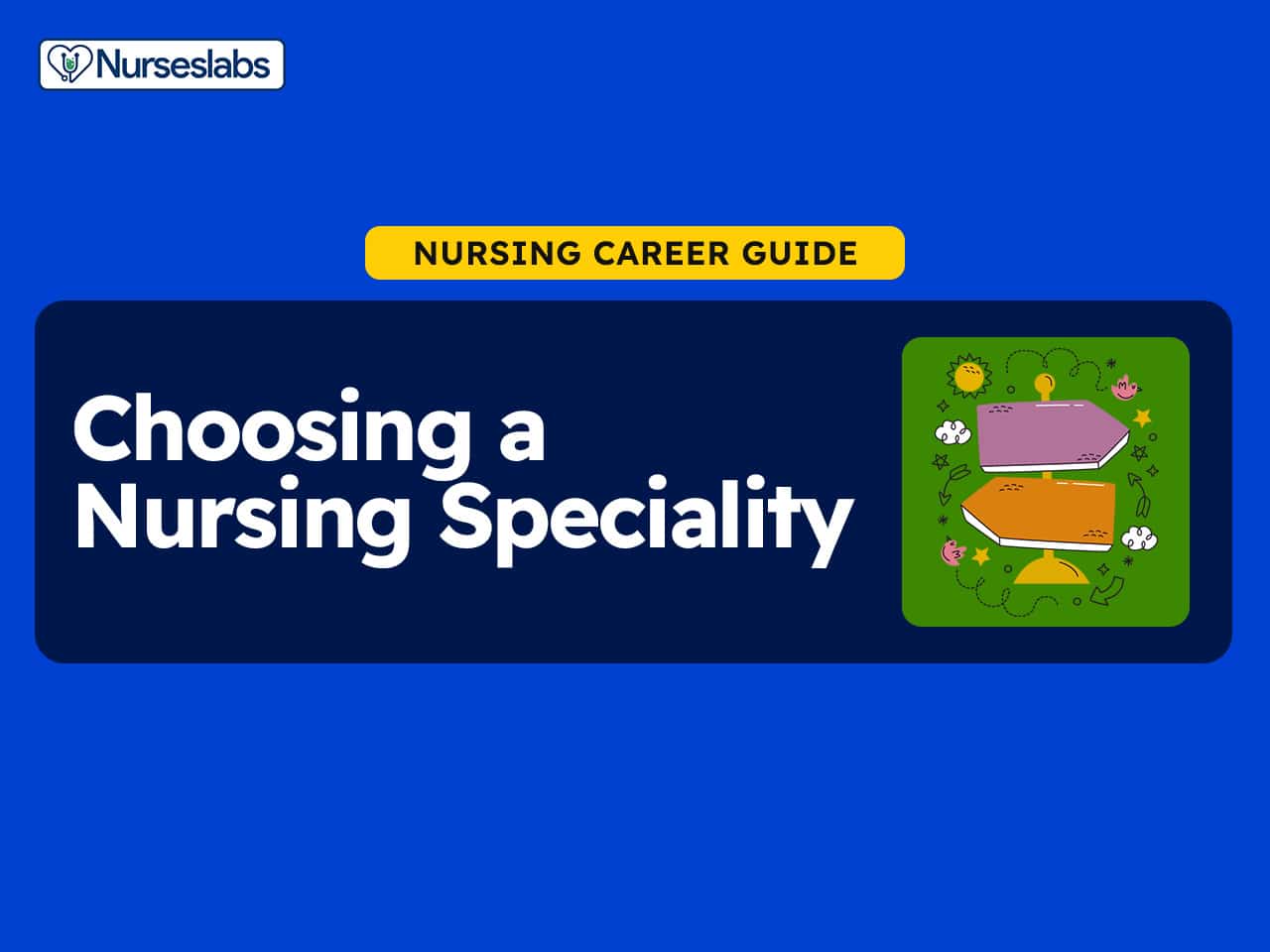
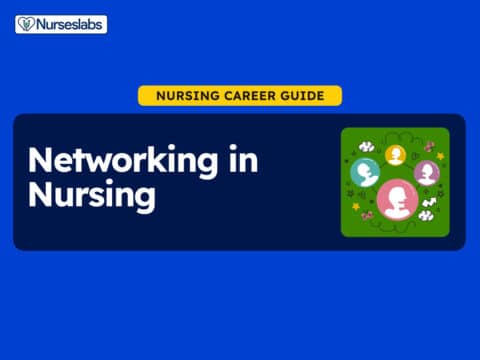

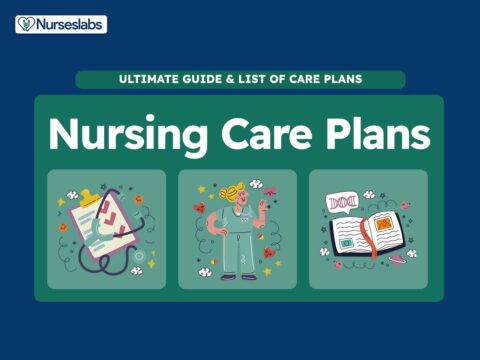
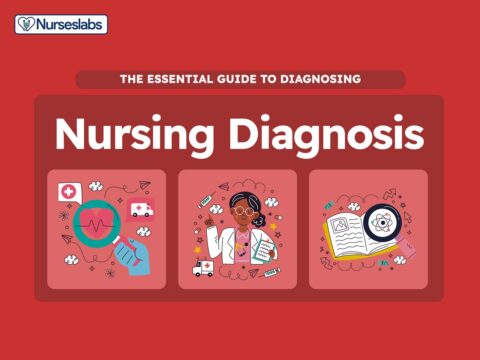
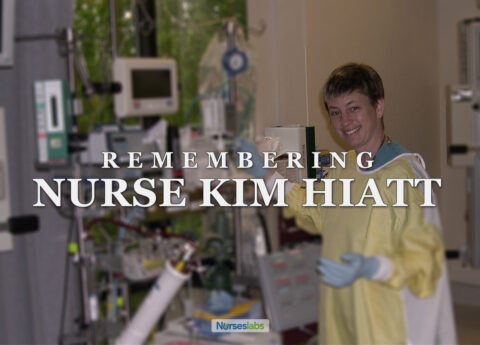
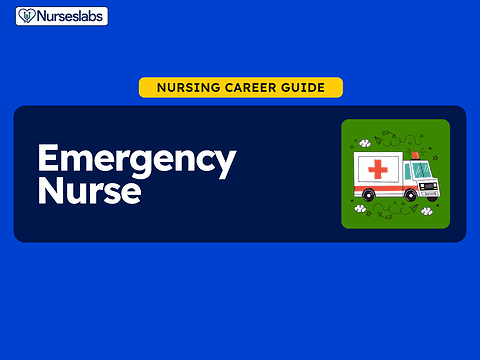
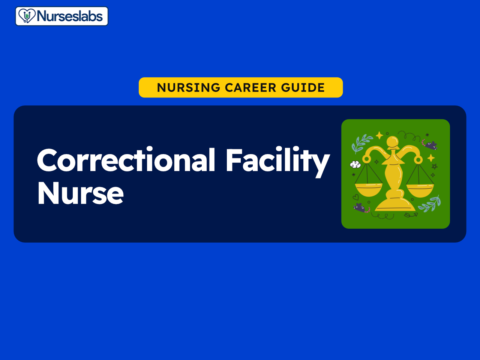
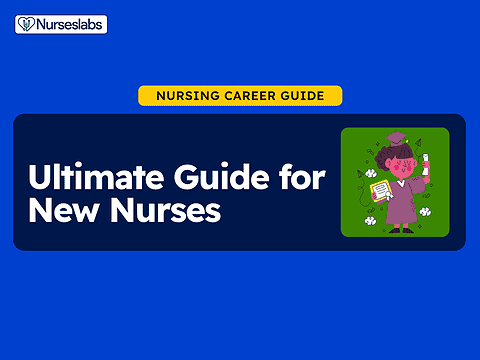
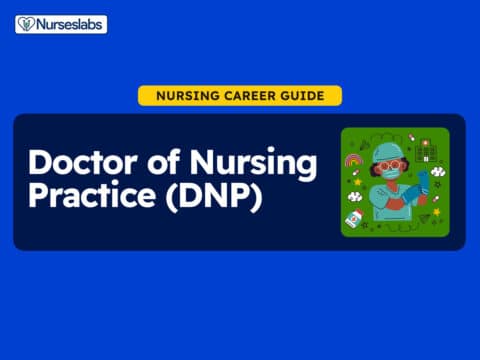

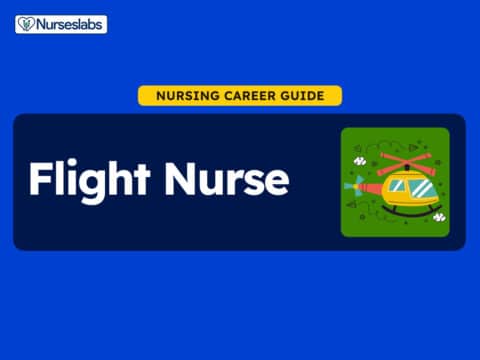
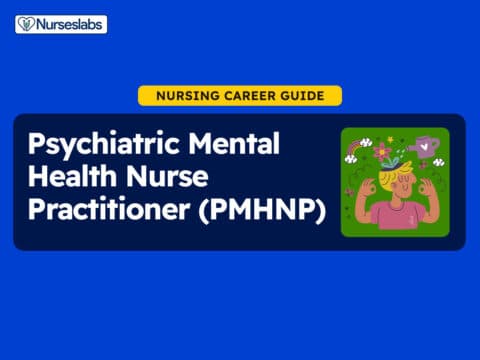
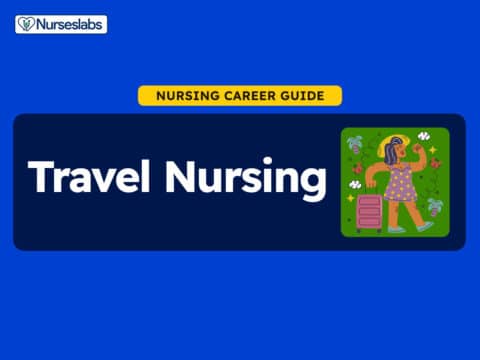
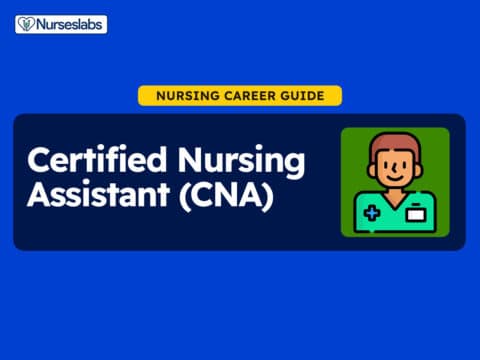
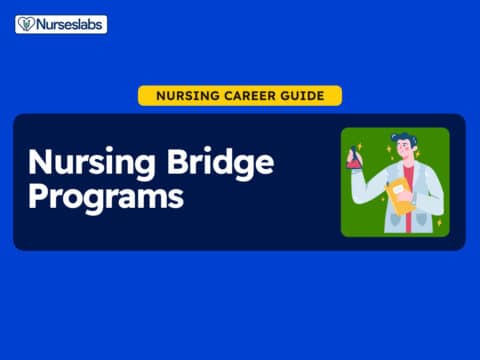
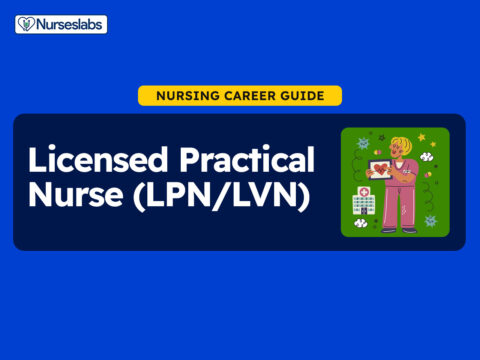
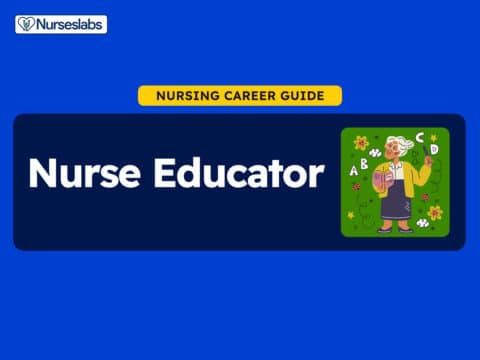
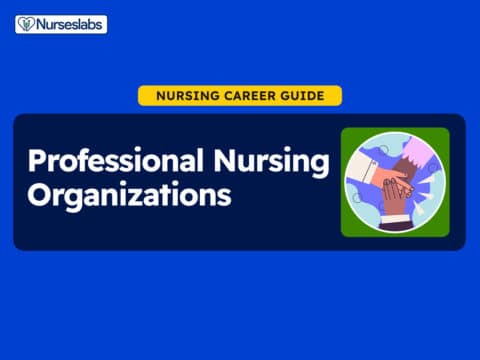
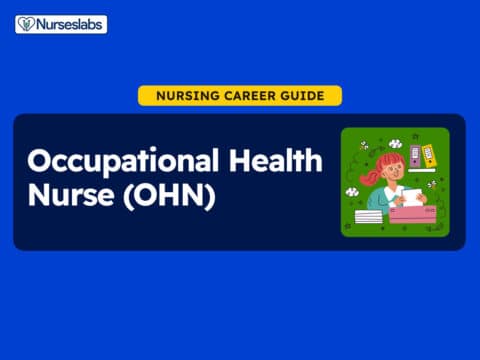
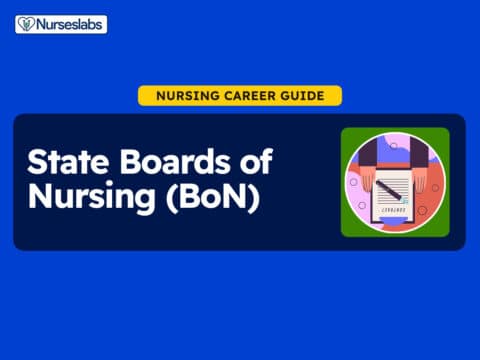
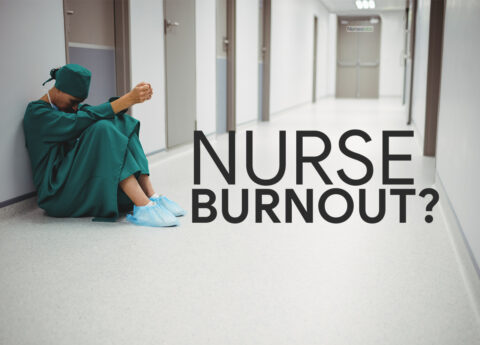
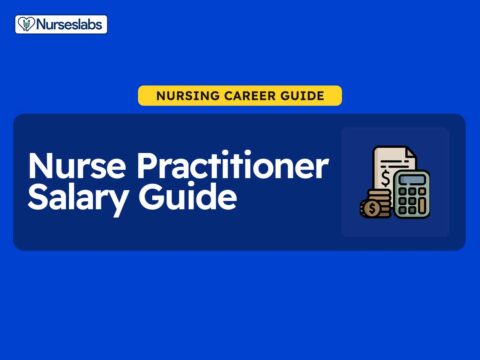
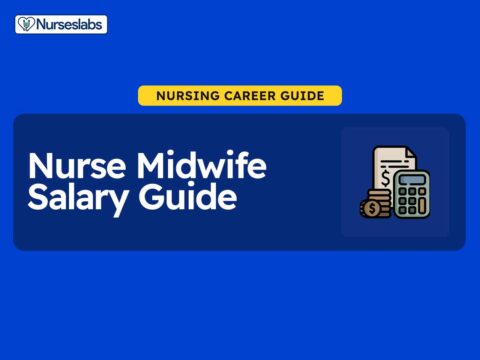
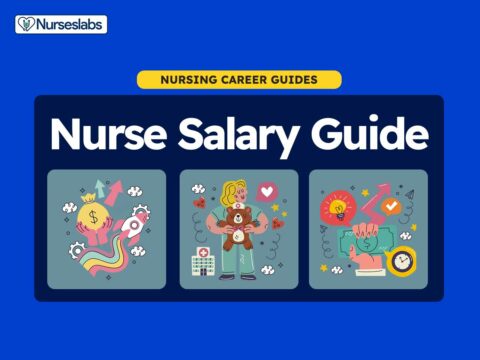
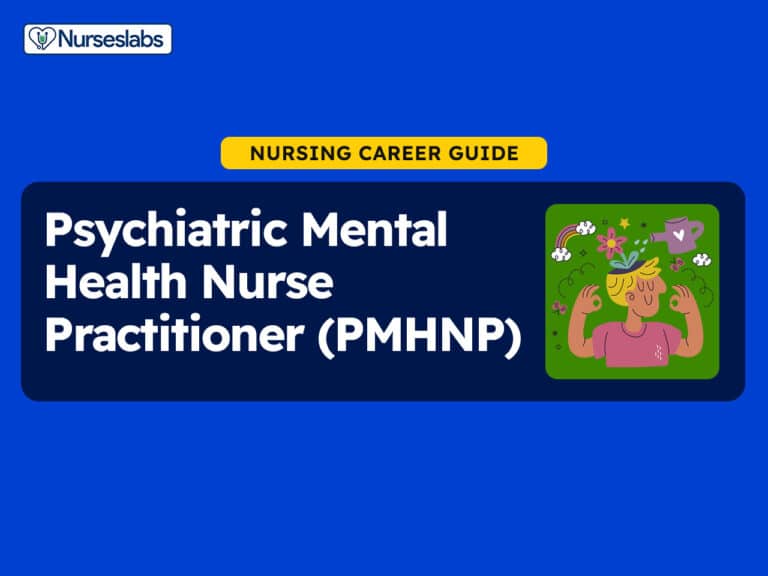
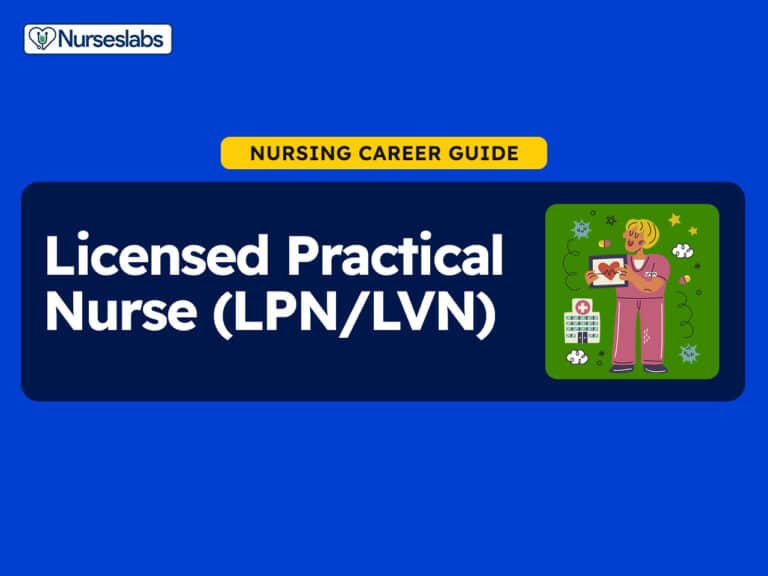
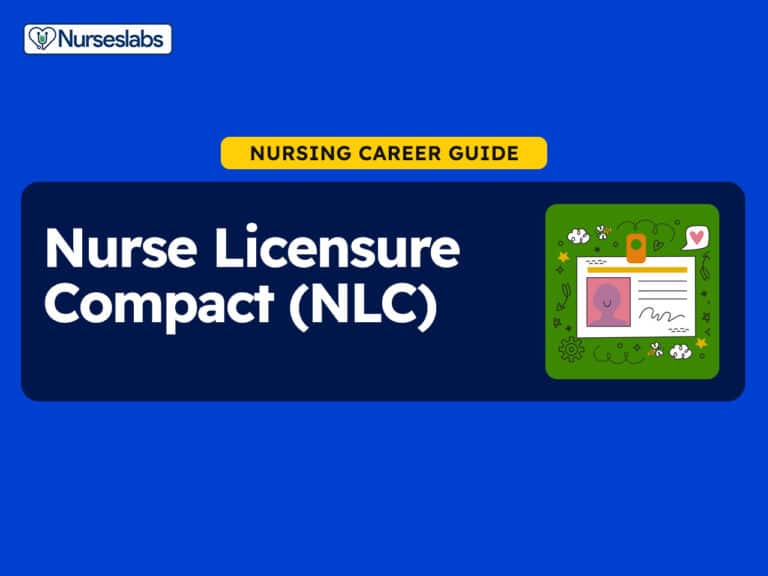


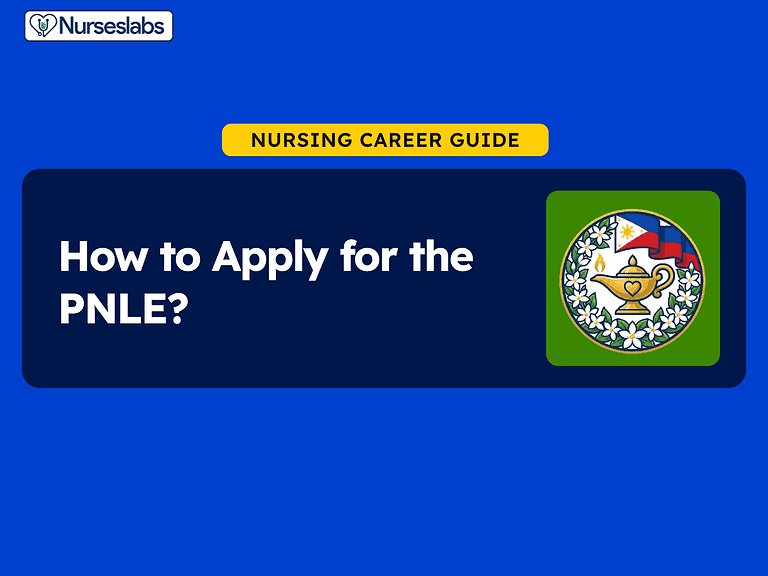
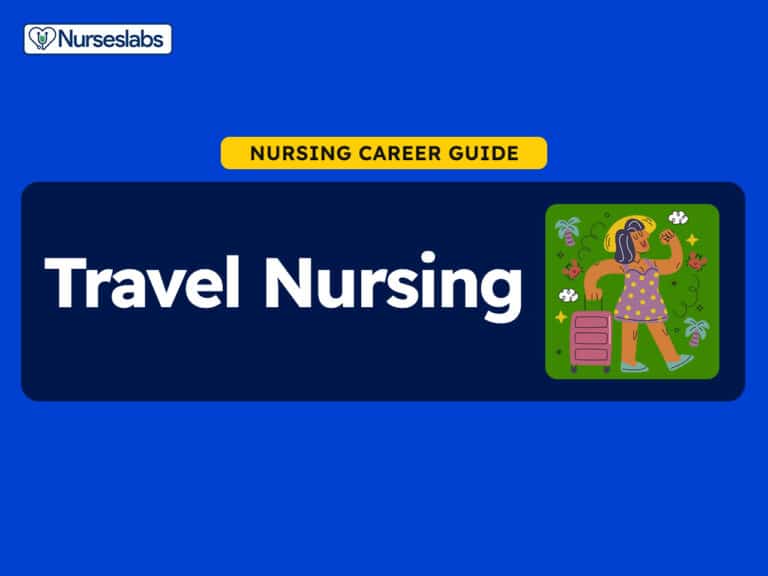
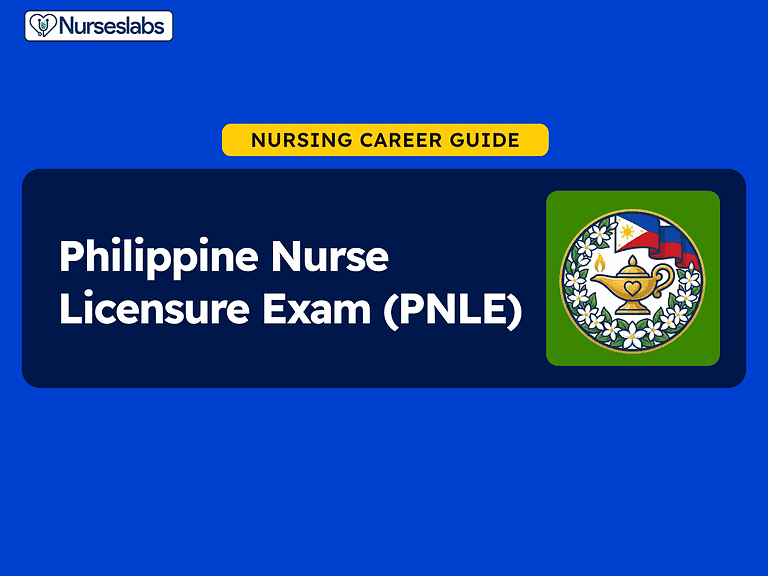
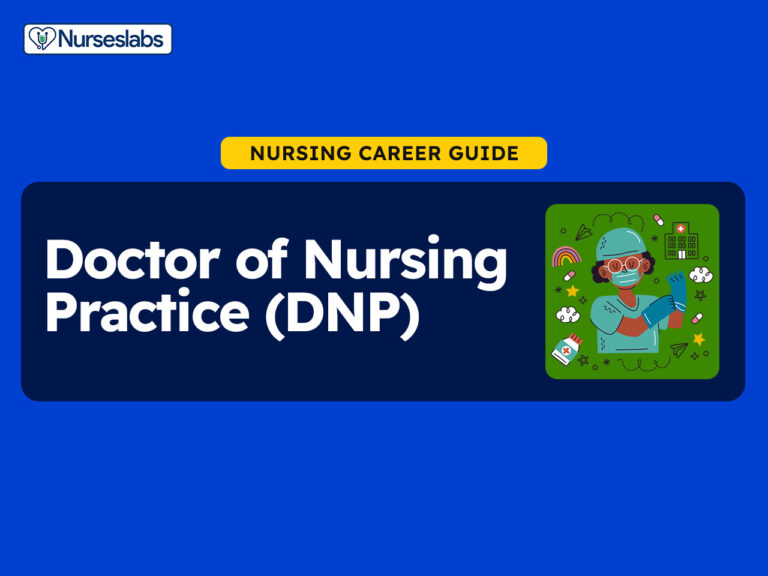

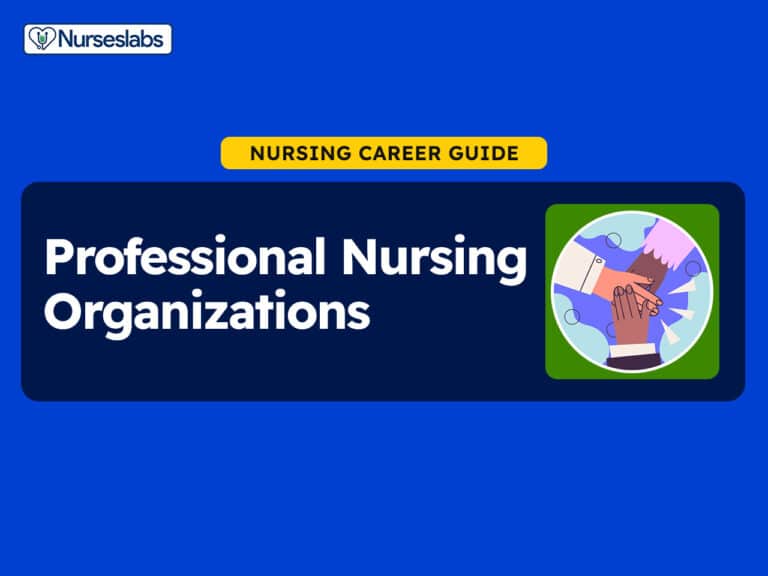
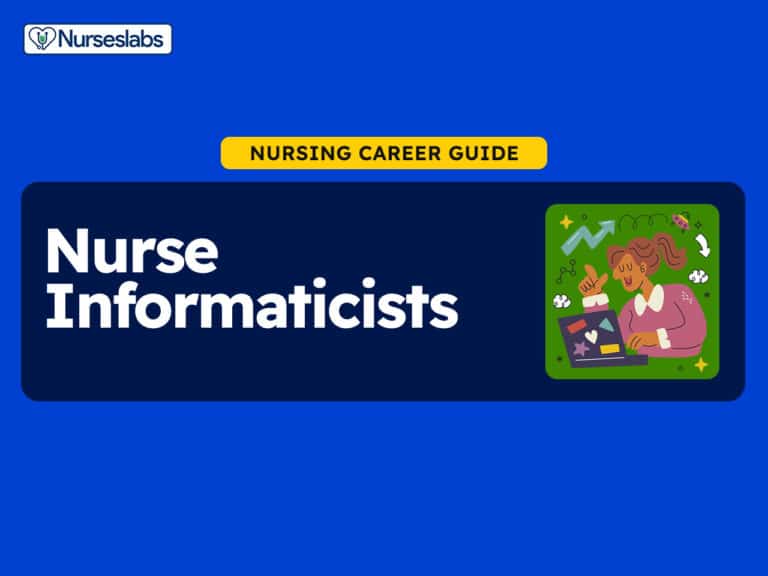
Leave a Comment